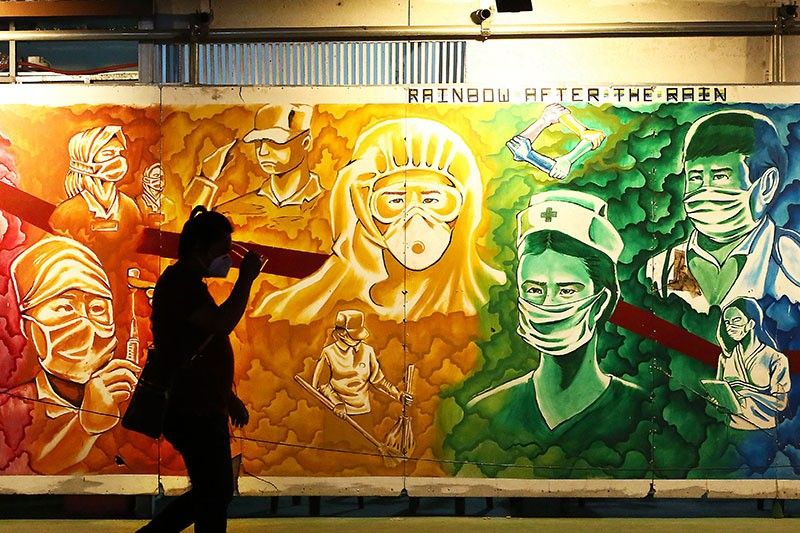CHR raises plight of stranded OFWs, healthcare workers

MANILA, Philippines — The government should allow overseas Filipinos to return home to their families and incentivize local healthcare workers to stay in the country by raising the standard for their compensation, the Commission on Human Rights said Saturday.
The Philippines recently extended the ban on travelers from India, Pakistan, Bangladesh, Sri Lanka, Nepal, United Arab Emirates and Oman until June 30 as a precautionary measure against the more infectious Delta variant.
Filipinos covered by the repatriation efforts of the government are exempt from the prohibition provided they undergo quarantine and testing protocols but some overseas Filipino workers have urged that the ban be lifted, saying they have been stranded in their host countries for over a month.
The government also announced that it would not be deploying any more healthcare workers to countries restricting the entry of Filipinos.
"The CHR extends its solidarity to our migrants and OFWs who are stranded far away from home and their families," Gwendolyn Pimentel-Gana, CHR focal commissioner on migrant rights, said. "We recognize the plight of our migrant workers, who may grapple with the loss of their income, may experience fear and suffering as a result of the COVID-19 outbreak, and may suffer from the emotional distress of not seeing their families."
"While we understand that the ban on the return of OFWs was meant to prevent the possible spread of the new COVID-19 strain in the Philippines, the government should reconsider its imposition and allow Filipinos to come home to their families, even if it meant imposing stricter quarantine procedures upon their arrival in the country."
The CHR further urged the government to raise the standards of compensation for healthcare workers, to provide them with just wages and benefits, and to ensure the promotion and protection of their general well-being.
"Due to inadequate compensation and financing for the health sector in the country, HCWs are forced to seek employment abroad," Pimentel-Gana said.
"Migration should be a choice and not the only option for HCWs, and OFWs in general."
Obligations to migrant workers under international law
Primentel-Gana emphasized that migrant workers and their families have "the right at any time to enter and remain in their State of origin" under Article 8.2 of the International Convention on the Protection of the Rights of All Migrant Workers and Members of Their Families to which the Philippines is a state party.
Article 13 of the Universal Declaration of Human Rights, she added, provides that: “Everyone has the right to leave any country, including his own, and to return to his country.”
This right is also guaranteed by Article 12 of the International Covenant on Civil and Political Rights (ICCPR), the commissioner said.
While Article 4 of the same treaty allows states to take "measures derogating from their obligations" in times of public emergencies that threaten the life and existence of a nation, Pimentel-Gana said "such measures must not be inconsistent with their other obligations under international law."
"Restrictions must be neither discriminatory nor arbitrary in application, and must at all times be respectful of human dignity, human rights, and fundamental freedoms," she said.
— Bella Perez-Rubio
- Latest
- Trending






























